Quotes & Sayings About Slaves To Technology
Enjoy reading and share 6 famous quotes about Slaves To Technology with everyone.
Top Slaves To Technology Quotes
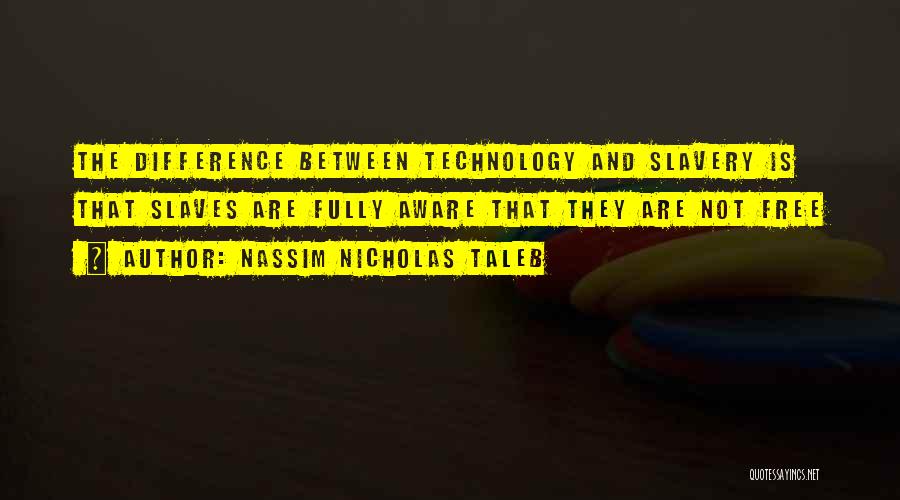
The difference between technology and slavery is that slaves are fully aware that they are not free — Nassim Nicholas Taleb

I read somewhere that if you translated all the gadgets and technology in our houses to make our lives easier and save time, each of us would have the equivalent of 300 slaves, in Roman times. We have these incredible luxuries, incredible power and privileges, but we seem to be squandering them on little plastic spoons to stir our coffee with, that'll last two seconds in our lives. — Herbert
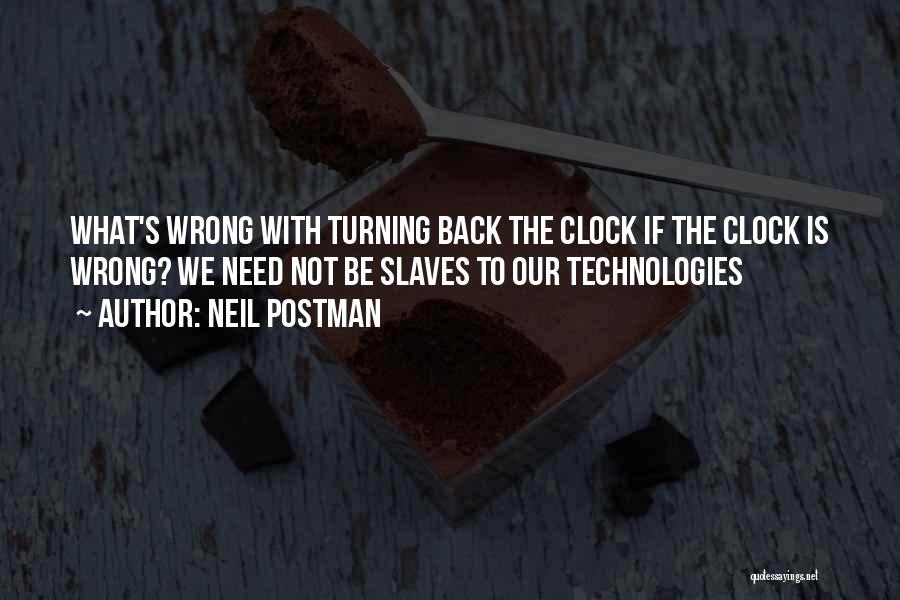
What's wrong with turning back the clock if the clock is wrong? We need not be slaves to our technologies — Neil Postman
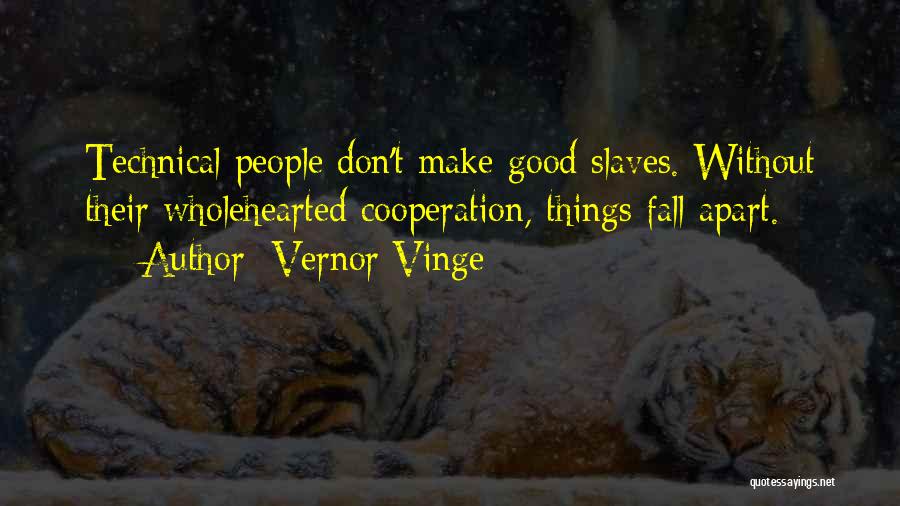
Technical people don't make good slaves. Without their wholehearted cooperation, things fall apart. — Vernor Vinge
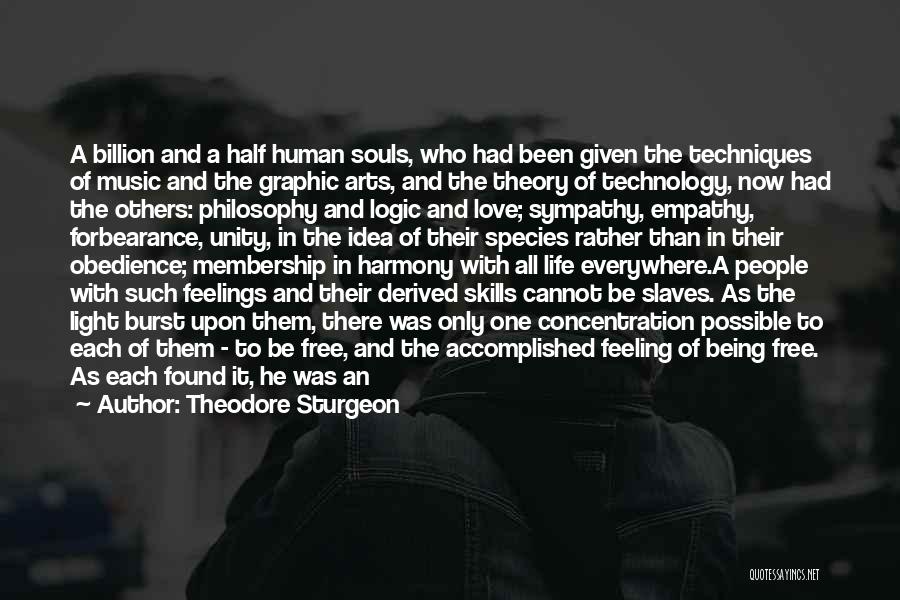
A billion and a half human souls, who had been given the techniques of music and the graphic arts, and the theory of technology, now had the others: philosophy and logic and love; sympathy, empathy, forbearance, unity, in the idea of their species rather than in their obedience; membership in harmony with all life everywhere.
A people with such feelings and their derived skills cannot be slaves. As the light burst upon them, there was only one concentration possible to each of them - to be free, and the accomplished feeling of being free. As each found it, he was an expert in freedom, and expert succeeded expert, transcended expert, until (in a moment) a billion and a half human souls had no greater skill than the talent of freedom. — Theodore Sturgeon
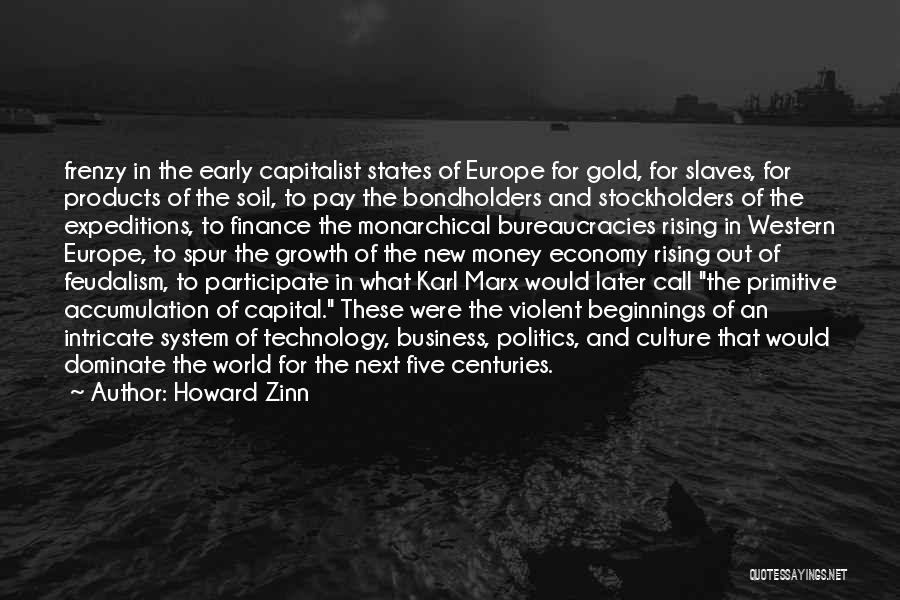
frenzy in the early capitalist states of Europe for gold, for slaves, for products of the soil, to pay the bondholders and stockholders of the expeditions, to finance the monarchical bureaucracies rising in Western Europe, to spur the growth of the new money economy rising out of feudalism, to participate in what Karl Marx would later call "the primitive accumulation of capital." These were the violent beginnings of an intricate system of technology, business, politics, and culture that would dominate the world for the next five centuries. — Howard Zinn





